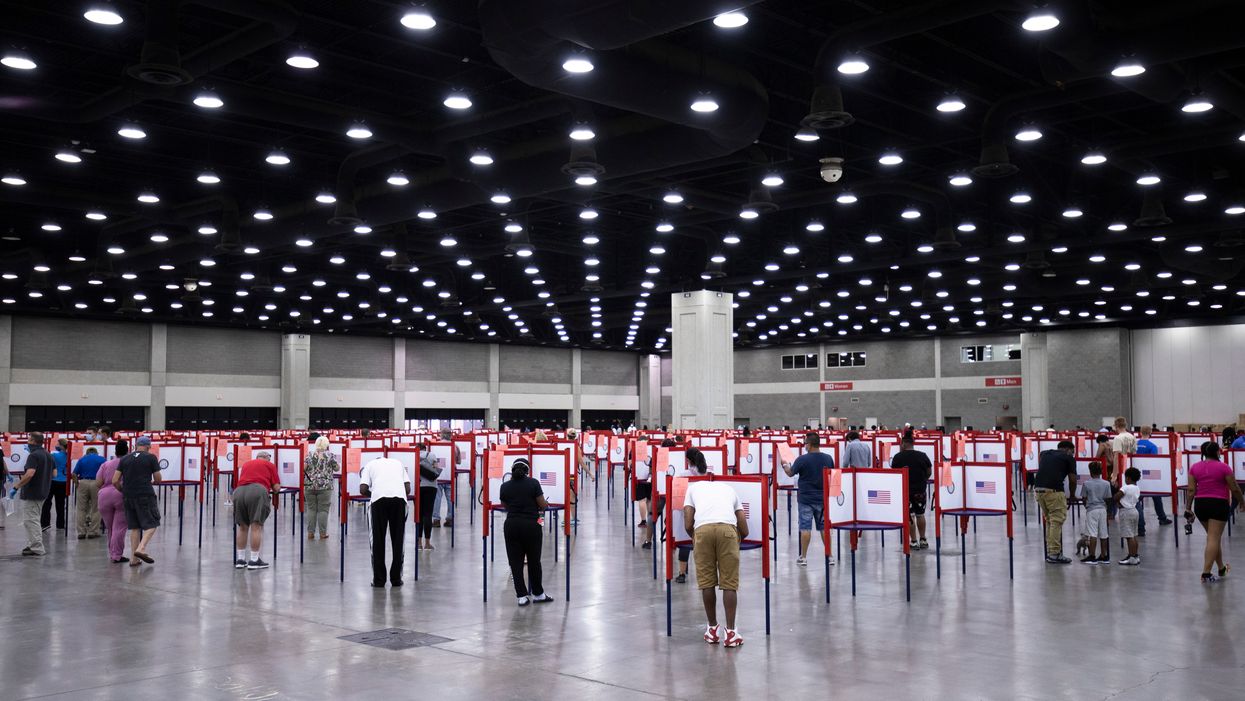When it comes to elections during the pandemic, Kentucky has stood apart in two ways. It instituted one of the nation's most restrictive voter identification laws just as the coronavirus was shutting government offices that issue ID cards, but its leaders also cut an unusual bipartisan deal resulting in one of the smoothest vote-by-mail primaries so far.
A civil rights group has now sued to make the state abandon that first move, but stick with the second, at least through the November election.
Filed Tuesday in state court, the lawsuit comes early in what's likely to become a flood of litigation to make voting for president easy and safe this fall. While most states have made accommodations for their primaries, they have not done so for the general election.
Many legislatures adjourned for the year before the resurgence of Covid-19 infections. Some governors with the power to change the rules on their own, in both parties, have not yet confronted their options, while many GOP governors seem ready to resist expanded voting by mail in light of President Trump's emphatic objections.
The suit in Kentucky, brought by the Fair Elections Center on behalf of four voters who say their fragile health will preclude them from going to the polls this fall, seeks to force the state to maintain the rules used for the June primary conducted mainly through the mail.
Under a deal between Democratic Gov. Andy Beshear and Republican Secretary of State Michael Adams, the state's usual requirement of an excuse to vote absentee was suspended, and voters were informed by postcard they could request a mail ballot online and send it in two weeks before election day.
To accommodate people who decided they needed or wanted to vote in person, counties were required to have at least one polling place and open it several days ahead of time. That raised serious eyebrows when there was just one was set up in both Louisville and Lexington, but on primary day the facilities were generally described as efficient and the length of the lines manageable.
After the suit was filed, the governor's office said Beshear would support an indefinite extension of the primary regulations, while the secretary of state has declined to comment.
The two remain on opposite sides of the voter ID law. Adams helped to draft the measure this winter, saying it would enhance election security. It was enacted over a veto in March from Beshear, who said it would lead to voter suppression.
Either way, the suit maintains, "a pandemic is no time to impose a new requirement for identification that forces voters to enter government offices, have in-person interactions with election officials, and/or enter other public spaces to obtain a copy of their ID."
To keep the ID law but drop the mail voting easements, the suit says, would violate the state Constitution's mandate that "all elections shall be free and equal."
The arrangements for the primary were widely hailed as working as designed. More than a million votes were cast, four out of five by mail in a state that usually records fewer than 5 percent submitted that way because of the excuse rules. Thanks mainly to a high-profile Democrtatic Senate nomination contest, the turnout statewide was 29 percent, almost matching the record for a primary set a dozen years ago.
And the 4 percent share of mailed ballots that were rejected — mostly because the envelopes weren't signed or were mailed too late — was below the last two elections.
Trump can count on the 8 electoral votes from the state, which has reported more than 17,500 coronavirus cases and just over 600 deaths. And Majority Leader Mitch McConnell is the solid, if not prohibitive, favorite to secure a seventh Senate term despite an extraordinarily well-funded challenge from Democrat Amy McGrath, a Marine fighter pilot veteran who lost a House race two years ago.




















Trump & Hegseth gave Mark Kelly a huge 2028 gift